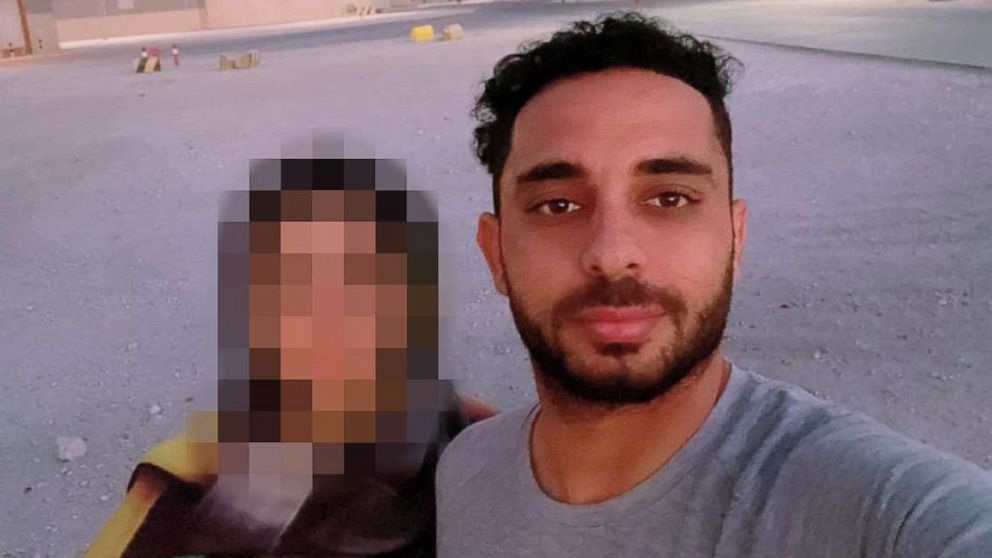American returns to Afghanistan to save wife, escapes 2 months after US forces left
For 19 days, a naturalized American citizen born in Afghanistan, who served the U.S. mission there for four years, has been waiting at a military base in Qatar, eager to make it back to the American Dream he built for himself and his wife.
But he acknowledges it's better than being back in Kabul, where he was stuck for more than 50 days following the withdrawal of U.S. forces, while Taliban fighters patrol the streets, looking for blue U.S. passports like his.
"How can you leave a U.S. citizen with the background that I have, that can be hunted at any time? How can you leave them there?" Prince Wafa, 30, told ABC News in a recent phone call, expressing frustration at the Biden administration.
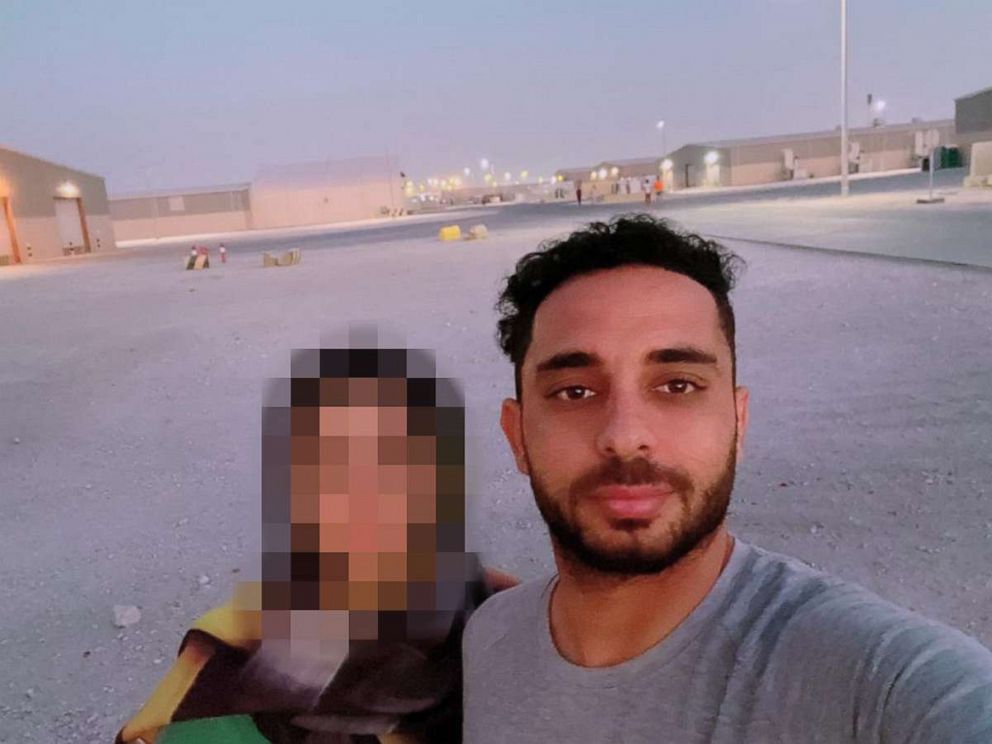
"I expect more from my government," Wafa said, taking aim at the State Department and the United States Citizenship and Immigration Services (USCIS). "Some people are basically destroying the entire face of the organization. And because they are the people we see, we think everybody is like that," he said.
It's now been more than two months since the U.S. declared the mission over, but the State Department's top management official Brian McKeon told lawmakers last week there were still 81 Americans ready to depart, while thousands of U.S. visa-eligible Afghans -- tens of thousands of whom served alongside U.S.forces -- remain behind.
The government had urged U.S. citizens and green card holders to leave Afghanistan since March. Secretary of State Antony Blinken in a hearing last month defended the withdrawal executed under tough conditions and praised the administration for extracting 124,000 Afghans and 6,000 U.S. citizens to safety in a two-week period. Blinken said in Aug. 30 remarks that the number of Americans who remained who still wanted to leave was "under 200, likely closer to 100."
"Part of the challenge with fixing a precise number is that there are long-time residents of Afghanistan who have American passports, and who were trying to determine whether or not they wanted to leave," he said at the time. "If an American in Afghanistan tells us that they want to stay for now, and then in a week or a month or a year they reach out and say, 'I've changed my mind,' we will help them leave," he said.
At least one lawmaker, Sen. Ben Sasee, R-Neb., has since claimed "more than 300 Americans" are still behind.
A State Department spokesperson told ABC News on Tuesday it was working with "less than 100 U.S. citizens who we have identified as prepared to depart and have the necessary travel documents" and stressed that while the number fluctuates daily, as individuals assess their personal situation, the agency continues to work "on a case-by-case basis to assist U.S. citizens and their immediate family members."
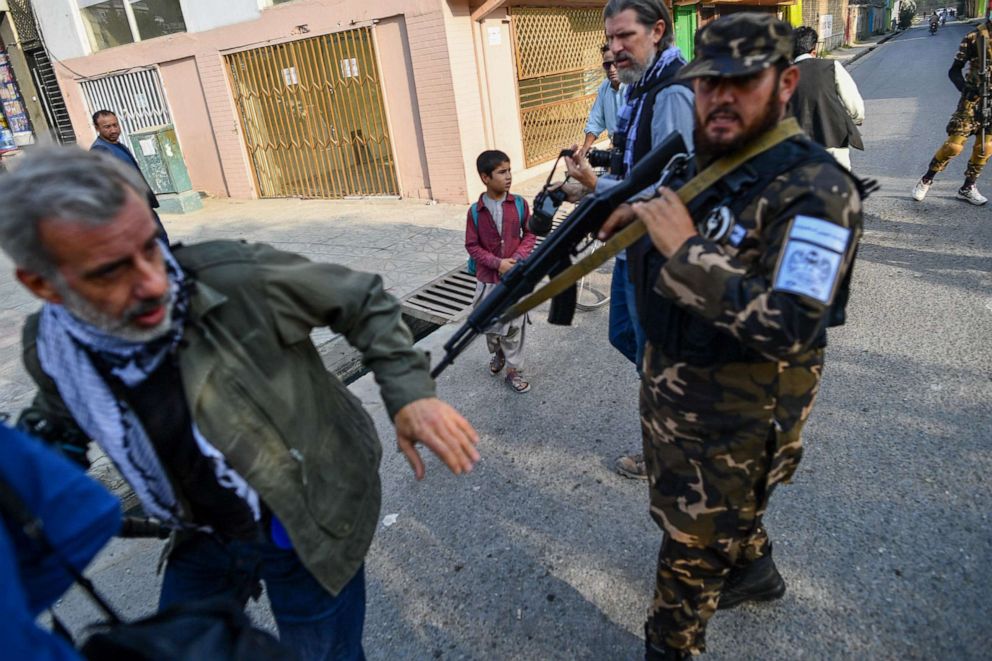
Wafa, who is a part-owner at a 7-Eleven convenience store in San Diego, where he's lived since 2019 and has since waited for his wife's IR-1 or spousal visa to process, said he was forced to take matters into his own hands as the crisis worsened ahead of evacuation flights.
"The situation was getting out of control, and as someone with experience in the military, and watching from outside, having grown up in Afghanistan, I could smell the problems. I could see that things are not normal," he said. "So, I said, 'I'll go myself.'"
Returning to Kabul for his wife
Wafa flew to Afghanistan in late July -- and said there's "no way" his wife could have gotten out unless he went back to help her navigate through the chaos.
He could have tried leaving on a commercial flight in the first two weeks of August, but he refused to go without his wife who did not have a visa -- and the collapse of Kabul came so swiftly, he recalled.
The Afghan government and city of Kabul fell to Taliban control on Aug. 15, under a timeline U.S. officials said they did not predict. As panic ensued, Wafa received the wide alerts from the State Department to travel to the airport for evacuation flights in late August but was discouraged by stories of beating and robberies on the route there.
"In order for us to even get to the gate was literally impossible. Like zero chance -- even with an American passport in your hand," he told ABC News.
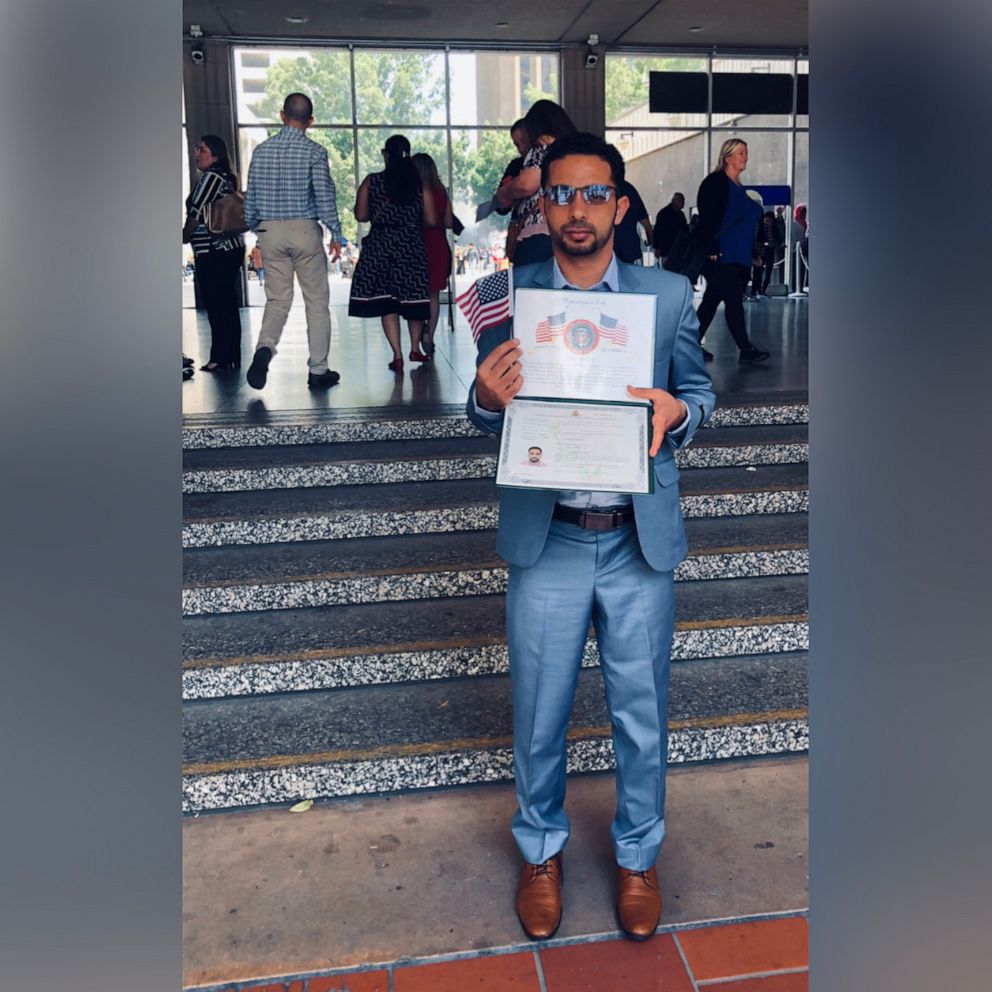
Wafa described the scene outside his shelter as "more than two miles" of "thousands of panicked people" trying to get to the gates -- past Taliban checkpoints to get there, which he was not comfortable with, being an Afghan-American who aided the U.S. mission.
"I would have to basically show to the Taliban, the people I was hiding from and fighting against for years that I am an American trying to go to the gate," he said. "How to trust these people overnight that much? I don't know."
As time started to run out, he called back to the military officers he had worked with, who rallied to help.
Jared Van Dop, a military officer who met Wafa in 2012 when he served as his supervisor in Afghanistan, communicated with him through Signal, sharing Wafa's frustration while praising the "tenacity" of the man he served alongside.
"I am fighting this war and I will get out of but how, I don't know," Wafa said in a text to Van Dop on Aug. 30.
"US military is gone, it's over," Van Dop responded later the day, in messages reviewed by ABC News. "State Department says they are going to keep working to get Americans out, but I'm not sure how they're going to do that."
"My brain doesn't work really not sure what to do," Wafa replied after the State Department told him to shelter and wait for further instructions.

"He flat refused to leave the country without his wife," Van Dop told ABC News in an email. "He risked his own life to save hers. He risked his life to serve the U.S. military in our efforts to stabilize the country. We should be welcoming them into this country."
Stranded in Kabul
Weeks passed with Wafa and his wife bunked down with 20 other people. After the Taliban allowed airlines to resume international flights in late September, he started seeing planes take off but said he hadn't received a call he was on one.
"I was slowly frustrated, and I was pissed. I cannot even express how I felt," he said.
He said with the help of pressure from allies at home, the State Department called him to a flight on Oct. 1 -- but he wouldn't leave that day, either.
Wafa and his wife got all the way to the airport, through Taliban checkpoints, when the flight was canceled, he says, and they had to turn around, terrified to walk back.
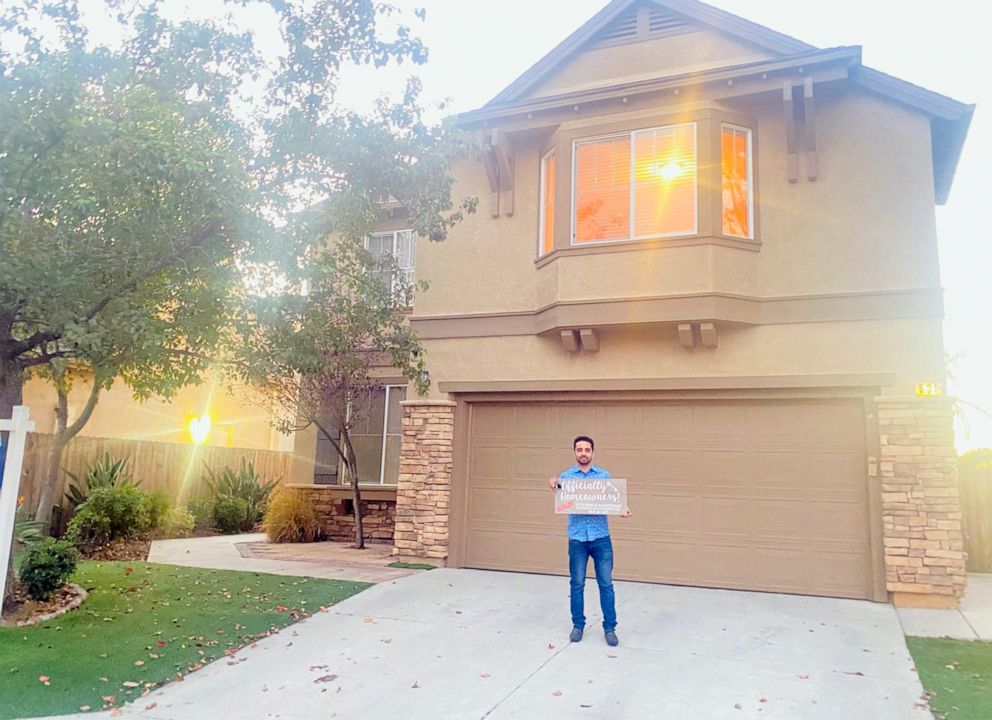
"You have to walk back through that checkpoint and because I already showed my American passport, that was very scary," he said, his tone turning from frustration to seriousness.
Wafa would wait another three weeks -- full of anguish and uncertainty -- to get called to another flight. In that time, he wrote President Joe Biden a direct plea. He also resorted to desperate measures, including, he says, paying $3,500 for a visa for his wife to go to Pakistan off the black market.
"It's illegal, yes, I know -- but what do you do right when you don't get help from your own government? Like what do you do?" he said.
He said he remembered back to Biden telling ABC News Anchor George Stephanopoulos on Aug. 18 that if there were U.S. citizens left in Afghanistan after the withdrawal deadline who wanted to leave, "We're gonna stay to get them all out."
Since Aug. 31, the State Department has directly assisted in the departure of 385 U.S. citizens and 285 Lawful Permanent Residents (LPRs) from Afghanistan, a spokesperson told ABC News.
"We will continue to facilitate these departures because, as the Secretary has said, there is no deadline on this effort," they said.
California congressman takes the case
Ultimately, Wafa praised his local House Rep. Darrell Issa, R-Calif., for helping secure his departure last Friday on the thirteenth chartered Qatar Airways flight to leave since the airport reopened.
"I'm thinking without him, it wouldn't be possible for me to be here, because there's a lot of Americans still sitting there," he told ABC News on a phone call from a military base in Doha.
Issa's office has facilitated at least 49 individuals and their families out of Afghanistan and is working on at least two dozen other cases, a spokesperson said last week.
"The case of Prince Wafa offers such a great example of the problems that the State Department found themselves in," Issa told ABC News in a video interview, calling for the Biden administration to do more to create safe passages to lily pad countries.
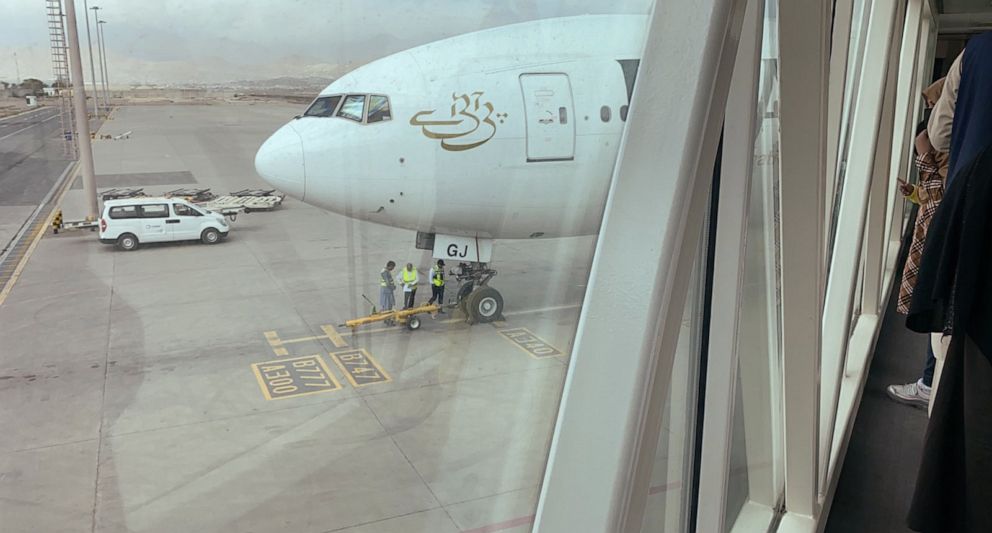
"We were able to work with him using modern communication, in this case, Signal, to stay in touch with him as he basically kept a low profile until we could arrange to get him extracted," he said. "As you might imagine, it's frustrating to see flight after flight leave with non-Americans when, in fact, an American citizen and his family were left behind."
"If you have a legitimate connection to an American citizen or to your work for the United States, we need to get you out and give you that opportunity rather than the mountain of paperwork," Issa added.
Touchdown in Qatar
Wafa and his wife are now at a USCIS "lilypad" station in Doha while she undergoes additional processing for an immigrant visa issued to foreign spouses of U.S. citizens. Most Afghans at the camp are being processed under emergency humanitarian parole, and Wafa feels as if he's being "punished" for following a process that would establish permanent residency for his wife.
"While most people have gone through a sort of simplified parole screening and vetting process, she's trying to get her visa before she arrives in the U.S. and not go through the parole pathway," Danilo Zak, a senior policy and advocacy associate at the National Immigration Forum, told ABC News. "There are different security and vetting requirements, so it's quite possible that it's going to take longer because they're in a bit of a unique situation."
Wafa started his wife's visa paperwork in 2019, and she has been approved for a visa interview since Aug. 20, 2020, he says, but another unforeseen circumstance thwarted their plans: a global pandemic.
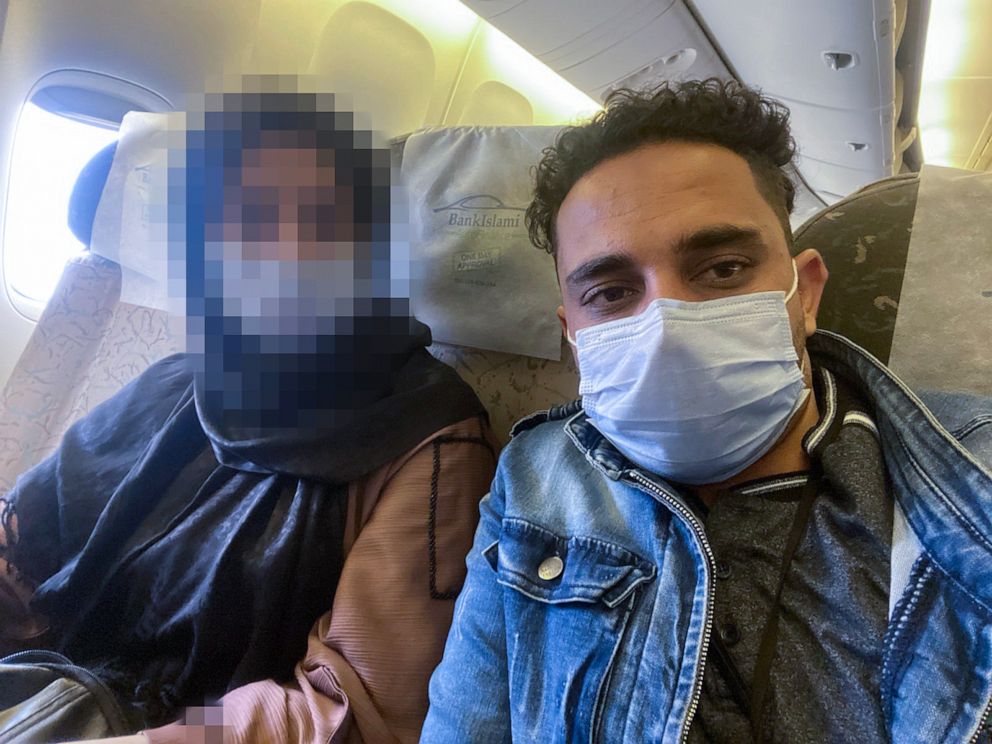
"It slowed everything, everything down," Wafa said, which Zak backed up.
"In-person interviews that are required to complete the visa process were delayed for so many people, and it's just a particularly sad situation here where they were left in limbo until it became really dangerous for her in Afghanistan," Zak said.
A love story on pause
Although he escaped to the Taliban, Wafa says he can't be at peace until they're home in the house he bought for them.
"All we need is to go for an interview and get the visa immigration on the passport. And then we can go home together," he said, adding her visa fees are paid, his income proven and documents were expedited by the Department of State National Visa Center.
His wife told ABC News in a message, translated into English, that it "means a lot" that he came to ensure her safety but that going to America is both "happy and sad," for her.
"The happy side is finally reunited with my husband," she said. "The excitement about being in America is to start my family and help my husband with our business in San Diego. I hope to be a great addition to USA society."
"And the sad part is leaving everyone behind in this situation in Afghanistan, but we had no choice but to leave them there," she said.
For now, they wait. Wafa vows to continue sharing stories of those left behind when he finally makes it home.
"I'm not going to be silent when I get to the U.S. This is not something that you can hide," he said. "Americans have to like they need to understand the emergency that's going on."
ABC News' Conor Finnegan, Ben Gittleson and Quinn Owen contributed to this report.
